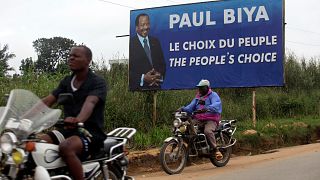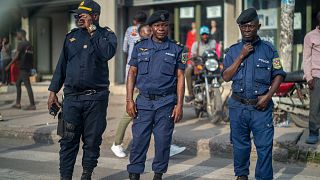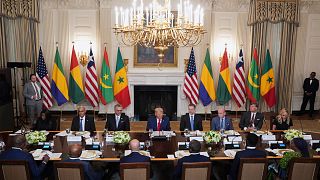USA
Scientists in the United States are using ancient DNA to reveal the stories of 36 people who were buried in unmarked graves in Charleston, South Carolina, in the late 1700s.
Situated on the east coast, its believed that over 40 per cent of all enslaved Africans passed through the city’s port. It was the largest point of disembarkation in North America during the trans-Atlantic slave trade.
The site, on Anson Street, was discovered in 2013 as construction workers dug foundations for a new arts centre. Since then, scientists have learned more about these people and their lives by pulling genetic material from their remains.
"The chemical signatures of the bone indicated that six individuals were likely born in Africa and the rest were likely born outside of Africa, in Charleston or in North America, ” said biological anthropologist, Raquel Fleskes of the University of Connecticut.
“This is a way of restoring dignity to individuals that should have always had this dignity all along,” she said.
It's one of a growing number of projects using ancient DNA research.
The region is littered with the unmarked graves of these enslaved people, but most of their names and stories have been lost to time.
"They lived, they worked, they died. And, now, they're being remembered forever,” said retired city planner, Ervin McDaniel Jr, and Yoruba drummer.
Now, 36 people living in the area, including McDaniel are serving as models, their hands to be cast in bronze, to represent each of the ancestors
They will become part of a memorial fountain at the site in Anson Street.
Community members have also submitted DNA samples, hoping to find a personal connection to one of the ancestors.
So far, there have been no matches, but La'Sheia Oubré, a community outreach organiser with the Anson Street African Burial Ground Project says that doesn’t matter.
"The one loving thing about this whole project is they're just family. We are all just family of the 36 ancestors. And that their story is our story," she said.
In 2019, the ancestors remains were reburied at the site during a traditional Yoruba naming ceremony.













01:01
Kenya: Visa-free travel now available for many African and Caribbean countries
02:20
Descendants of enslaved Africans find connection in Ghana
01:00
Pix of the Day: July 10, 2025
02:02
Could AI help fight mosquito-borne diseases?
02:20
Ancient DNA reveals genetic link between early Egypt and Mesopotamia
01:55
US contractors say colleagues fired live ammunition at Palestinians seeking food